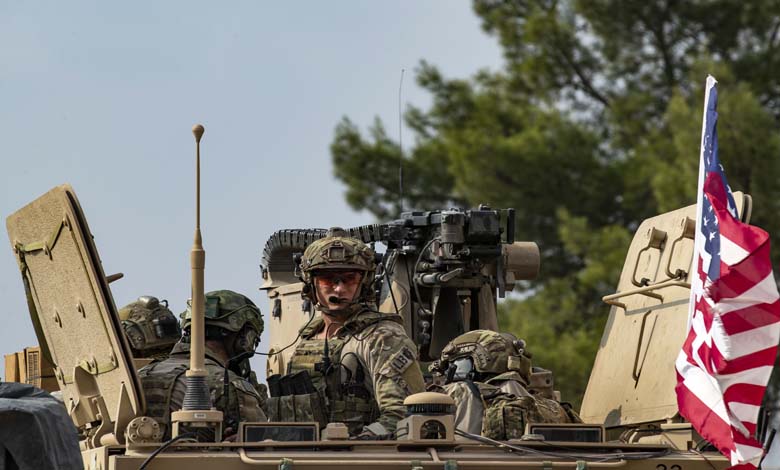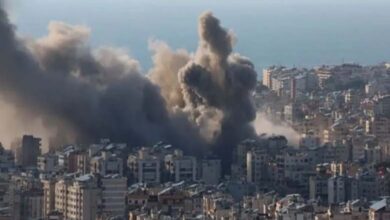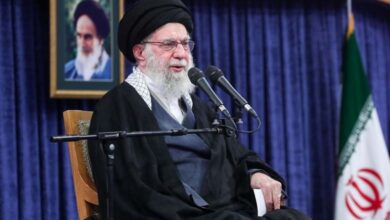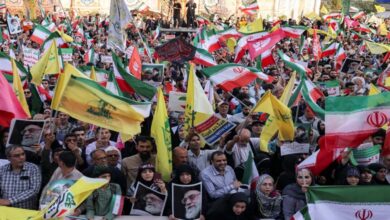US Strike on Iran Closer Than Ever

US media reports confirm that President Donald Trump has “secretly” approved Washington’s military intervention in the conflict with Iran, as mutual attacks between Tehran and Tel Aviv escalate to unprecedented levels.
-
Trump and Iran: 4 Possible Scenarios, Including “Shock and Awe”
-
Energy Investments: Iran’s New Card to Woo Trump and End Sanctions
On Thursday night, Israel launched strikes on Iran for the seventh consecutive night, while President Trump did not rule out possible US involvement in the war aimed at eliminating the Islamic Republic’s nuclear program. According to several outlets, the US administration has already approved the strike and is awaiting implementation.
When asked whether he had decided to launch US strikes on Iran, Trump said he doesn’t seek war, but added: “If the choice is fighting or letting them get a nuclear bomb, I’ll do what’s necessary. And maybe we won’t even need to fight.” He was due to be briefed Thursday—a public holiday in the US—in the Situation Room, where the most sensitive military decisions are made.
-
Trump’s Pressure Pushes Iran to Accept U.S. Demands on Nuclear File
-
Iran’s Nuclear Program Back in the Spotlight… and Trump Seeks Political Breakthrough
Earlier, the Wall Street Journal reported that Trump gave the green light to classified US plans to attack Iran during a late-night meeting on Tuesday. However, he postponed issuing the final order, pending any sign that Tehran might abandon its nuclear ambitions.
One of the likely initial targets is the underground uranium enrichment facility at Fordow.
In response to Trump’s call for “unconditional surrender” the previous day, Iran’s Supreme Leader Ali Khamenei declared on Wednesday that “Iran will never surrender.”
-
Between Escalation and De-escalation: How Will Trump Handle Iran?
-
Trump’s Return Pushes European Powers to Demand Increased Pressure on Iran
On the ground, the military confrontation continued Thursday morning with air-raid sirens sounding across Israel as Iran launched a new wave of missiles. Loud explosions were heard in Tel Aviv and Jerusalem.
According to Israeli emergency services, at least 32 people were injured. A spokesperson for Magen David Adom said two people were seriously wounded, while 30 others sustained minor injuries, and additional teams were treating victims at multiple sites.
An Israeli military source said that dozens of ballistic missiles had been fired, targeting a hospital and the stock exchange headquarters.
-
Iran Keeps Door Open for Dialogue with Trump and Prepares for New Sanctions
-
Missiles, Casualties, and Damage: Israel Reveals the Toll of Iranian Attacks
Deputy Foreign Minister Sharren Haskel described the attack on Soroka Hospital in southern Israel as “deliberate” and “criminal.” She wrote on X:
“Iran just hit Soroka Hospital in Be’er Sheva with a ballistic missile. This is not a military base, it’s a hospital. It’s the main medical center for the entire Negev region. Deliberate. Criminal. Civilian target. The world must act.”
The Israeli military announced a fresh wave of strikes on Tehran and other parts of Iran. It also ordered the evacuation of residents in the towns of Arak and Khondab, both near nuclear facilities, in anticipation of imminent strikes.
-
Iran Tests Trump’s Principles—Will He Fall Into the Trap His Predecessors Warned Against?
-
Iran-Israel Escalation: Mass Launch of Evacuation and Withdrawal Phases
It further confirmed that it had hit the Natanz nuclear facility again, as well as a “decommissioned reactor” in Arak during overnight air raids.
The Israeli Air Force “struck a nuclear weapons development site in the Natanz area,” a military spokesperson confirmed, adding that “the decommissioned nuclear reactor in Arak, Iran, was also targeted.” Meanwhile, Iran’s Mehr News Agency reported that air defenses had been activated in central Tehran.
Israel launched an unprecedented assault on its archenemy Iran on June 13, claiming to possess intelligence indicating that Iran’s nuclear program was nearing a “point of no return.”
-
Trump Pulls the Trigger Back: Why Did He Reject Israel’s Proposal to Assassinate Khamenei?
-
Iran and Israel: Cross-Strikes… Is There Still a Window for Nuclear Negotiations?
Since the start of this extraordinary confrontation between the two adversaries, Israeli strikes have killed at least 224 people and injured more than a thousand in Iran, according to official figures. In Israel, Iranian missiles and drones have killed at least 24 people, according to the government.
Donald Trump stated that Iranian leaders had contacted the United States seeking to negotiate, claiming they had “offered to come to the White House.” Iran quickly denied this, with its UN mission posting on X that “no Iranian official has ever sought to grovel at the gates of the White House.”
The United States, which has deployed a third aircraft carrier to the region, is the only country that possesses the GBU-57 bunker-busting bomb capable of destroying Iran’s deeply buried nuclear facilities, such as the one in Fordow.
-
Israel’s Strikes on Iranian Nuclear Facilities: Conflicting Assessments and Unclear Outcomes
-
Nuclear Talks – Iran Announces Withdrawal from Sixth Round
Asked about possible U.S. military involvement, Trump said, “I might do it, or I might not.”
On Wednesday, Iran’s Supreme Leader Ayatollah Ali Khamenei warned, “The Americans must know that any military intervention on their part will undoubtedly cause irreparable damage.”
UN Secretary-General António Guterres also warned against any “further military escalation” in the Iran-Israel conflict, saying its consequences would be “devastating for the entire region.”
In Tehran on Wednesday, loud explosions were heard and plumes of smoke were seen rising from multiple locations. Israeli Defense Minister Yoav Gallant stated that the air force had destroyed “Iran’s internal security headquarters.”
-
Israel Launches Massive Strike on Nuclear and Missile Facilities in Iran
-
Operation Rising Lion – How Israel Deceived Iran
Iran, in response, announced the launch of new hypersonic Fattah missiles targeting Israel, as it had already done on Tuesday night.
Since the start of Operation “Rising Lion,” Iran has fired about 400 ballistic missiles at Israel—20 of which hit civilian areas—and launched 1,000 drones, according to an Iranian military official on Wednesday evening.
Iranian authorities tightened internet restrictions on Wednesday, accusing Israel of “exploiting” the network for military purposes.
-
Is an Attack Imminent? US Newspaper Reveals Israeli and Iranian Preparations
-
Trump Doubts.. Iran Threatens: Is the Nuclear Deal Doomed Before It Begins?
Since its offensive began on June 13, Israel has targeted hundreds of military and nuclear sites, killed senior military officials and nuclear scientists. Trump has also asserted that he has the capability to kill Iran’s Supreme Leader.
Commenting on the Iran-Israel confrontation, Russian President Vladimir Putin told foreign journalists: “We are seeing increased popular support for Iran’s political leadership,” adding that “his Iranian friends have not requested military assistance from Moscow.”
Putin offered Russian mediation on the first day of the conflict. The Kremlin reiterated this offer on Wednesday, but the European Union responded coolly, saying Russia “cannot be an impartial mediator.”
-
Iran Reveals Nuclear Target Bank Inside Israel
-
Nuclear Talks: Iran Rejects Washington’s Proposal, Prepares Alternative Offer
The U.S. president, initially open to such an offer, shifted tone on Wednesday. Speaking to reporters at the White House, Trump said, “He offered to mediate. I told him to do me a favor—mediate for himself first. Let’s start with a mediation for Russia,” he added, addressing Putin: “You can deal with this (Middle East) conflict later.”
Iran, which denies seeking to build nuclear weapons, accuses Israel of trying to sabotage the nuclear talks that began between Tehran and Washington.
In Tehran, many shops have closed since the war began, and long lines have formed at gas stations. On the border with Iraq, a 40-year-old truck driver going by the pseudonym Fattah reported shortages of staple foods such as rice, bread, sugar, and tea, as well as crowded gas stations and rising prices.












